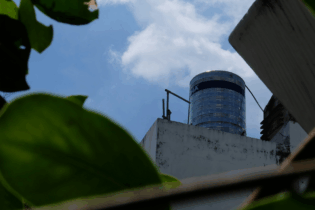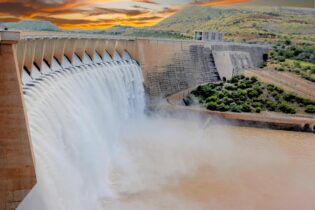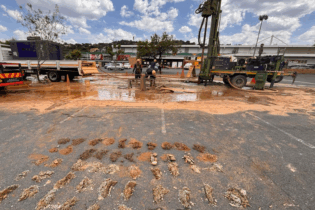Q.In the local water industry we have produced many unique solutions to meet rural and urban water delivery challenges. As a company, what are some of the challenges you have faced and the solutions you have found in response to these challenges?
A.The water problem in Africa is growing on a daily basis. Loss of skills and knowledge has intensified the challenge. The RARE Water technology, built upon proven and innovative electrocoagulation technology, will help industry and municipalities to confront these big challenges in a cost effective way.Electrocoagulation is an advanced and economical water treatment technology. It effectively removes suspended solids to sub-micron levels and precipitates heavy metals from water without the use of filters or the addition of any separation chemicals. The coagulated sludge thickens without the addition of polymers and separates easily.Containerised units are available for mobile site works and remediation as well as fixed turnkey installations for larger applications. A unit treating a million litres a day can be housed in a 20 ft container. Raw to brackish water can be treated to potable standards for 0.15 cents per litre.The plants are easy to maintain and operate. They have been designed and tested for use in remote areas. The skill sets needed to operate and maintain these plants are readily available within the rural communities. This ease of operation and maintenance is further underwritten by the ability to remotely monitor each plant. Maintenance events can be forecast and the technology can confirm on a minute-by-minute basis that each plant is operating optimally.As an illustration of our commitment to solving many of South Africa’s water related problems, we have invested in the manufacture and delivery of a versatile pilot plant. It will soon be illustrated cleaning acid mine water at a colliery near Middelburg. Q.What is your take on the shortage of water resources in our country and what, in your opinion, are some of the effective distribution solutions needed thereof? A.There is little we can do to improve the local reliable yield of water as it is out of our hands. However looking well after our water resources is our responsibility. The national average for water losses is fast approaching 30% i.e. the difference between treated or bought water and billed water. Losses are mainly via ageing piping infrastructure. Most of the undesirable old technology asbestos cement (AC) pipes are unaddressed all over South Africa. These AC pipes are not only causing health risks but are also the main culprit in terms of water leaks.Rehabilitation technologies that are readily available with excellent track records all over the globe are available to address these losses.Q.In terms of water resources management, water treatment, water laboratories, water storage and water distribution, how do your products and/or services benefit the water management sector, in terms of some or all the above topics?
A.The RARE Group offers rehabilitation technologies for the improvement of aging pipeline assets.Water resources management should point out the problem areas and prioritised remedial action should be part of each municipality’s Integrated Development Plan (IDP). The plan must identify and locate leaks and portions of the pipeline with a propensity for failure.The object of pipeline rehabilitation is to extend the life of the main and to obtain a fully restored pipeline that can compete against a replaced pipeline of the same dimension, hydraulic efficiency and technical valuation thereby ensuring reliable system performance. This can be done at a cost significantly lower than the traditional replacement cost.RARE uses three different technologies for rehabilitation as the requirements dictate i.e. swagelining, CIPP (cured-in-place-pipe) and Aqualiner. The swagelining process allows a tight-fitting polyethylene (PE) liner to berapidly installed in a pipeline without significantly reducing the diameter of the host pipe.However, just before the PE pipe relaxes completely it presses tightly against the inside of the host pipe, eliminating all annular space. CIPP is the most widely used pipeline rehabilitation technique – especially on gravity mains. The principles among the different lining techniques are very similar in terms of wet-out and installation. The self-contained Aqualiner equipment, lines the water or sewerage pipe with a thin but extremelystrong thermoplastic polymer composite.The differences in the requirements of each leaking line dictate the properties of the materials used or solution applied.Benefits of pipe lining versus traditional replacement: reduced social disruption and property damage, reduced compensation, leak reduction, energy savings, deferred major capital expense, reduced outage time, reduced operation and maintenance cost with less leaks to repair, and improved water quality. RARE is a well recognised trader and service provider to the fluid conveyance industry. RARE has been operating in South Africa since 1975, initially as Van Leeuwen Pipe and Tube, with its core business focus in the petro-chemical, mining and engineering sectors. Where most companies focus on a service or product, RARE provides a solution that encompasses the entire lifespan of the asset.Its product offerings include pipe, valves, and fittings. The company has expanded through organic growth and acquisitions and service offerings include: maintenance, refurbishment and operation; pipeline rehabilitation, trenchless technologies, specialised turnkey solutions, project management and water treatment solutions.





